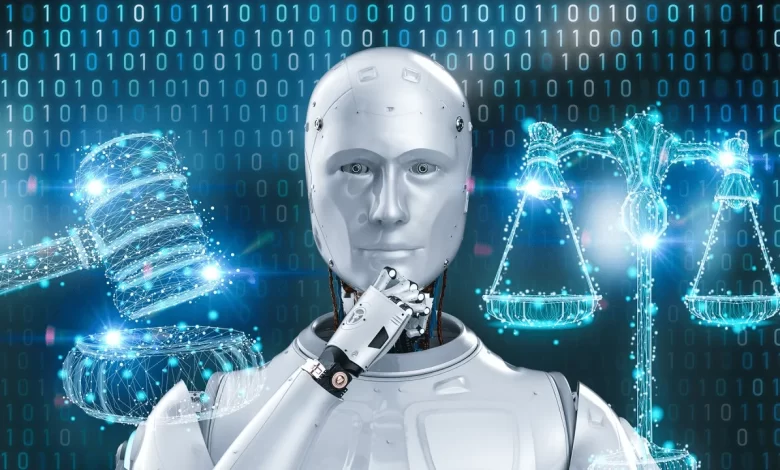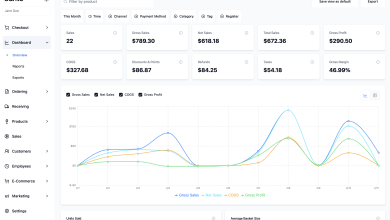
Has it ever crossed your mind how technology is shaping the legal world not forgetting the cases of DRUNK DRIVING? Think about this, lawyers with AI powers, making the whole process a lot more efficient and effective.
Managing legal issues is not easy at all, and no one wants to add issues that arise from drunk driving while dealing with legal issues.
However, when it comes to providing assistance, With the help of AI, lawyers can do even better. The following are seven key ways through which AI is improving the justice system in cases of individuals charged with drunken driving.
1. Enhanced Evidence Analysis
Evidence is one of the most crucial aspects of any drunk driving case. Traditionally, analyzing evidence such as police reports, breathalyzer results, and witness statements can be time-consuming and labor-intensive. However, AI can significantly streamline this process.
AI-powered tools can quickly sift through vast amounts of data to identify critical pieces of evidence. For instance, machine learning algorithms can be trained to recognize patterns in accident reports and detect inconsistencies that may indicate tampering or errors.
Additionally, AI can analyze video footage from the scene, extracting relevant details that might be missed by the human eye. This enhanced evidence analysis allows lawyers to build stronger, more compelling cases for their clients.
2. Advanced Legal Research
Transforming Legal Research Efficiency
Legal research forms the backbone of any strong case, especially in complex drunk driving incidents where precedents and statutes play a crucial role. Traditionally, this task has been labor-intensive, requiring lawyers to manually sift through endless volumes of legal literature to find relevant information.
However, AI has revolutionized this process by dramatically improving the efficiency and accuracy of legal research. This technological advancement is particularly significant in the United States, where car accidents remain a major concern.
For example, in Myrtle Beach, South Carolina, a popular tourist destination, traffic collisions are alarmingly frequent. In 2022, the city reported over 3,000 car accidents, with a significant portion involving alcohol.
Given these statistics, a Myrtle Beach car accident lawyer is often essential in navigating the complex legal landscape of drunk driving cases. These professionals leverage AI-powered legal research tools to build stronger cases, ensuring justice for victims and holding responsible parties accountable.
AI-Powered Legal Platforms
Some of the existing applications that employ AI in responding to legal questions include ROSS Intelligence, and LexisNexis that employ natural language processing (NLP) systems. These platforms can also find the specific cases, statutes, and legal precedents among millions of documents at the shortest time possible.
These tools free lawyers a lot of time by pointing out what needs to be researched and can take time lawyers would otherwise spend on researching. This not only helps to save time, but also guarantees that some important moment is not overlooked.
Accurate and Relevant Information
TLA is not merely a location of documents; it analyzes content and gives results based on current legal aspects. For example, if the user wants the AI to find cases on one aspect of the drunk driving law, then it can sort out all the cases that do not have anything to do with that area of the law. The exacting filtering made it possible for the lawyers to put forward more substantive and complete cases due to precise research.
3. Predictive Analytics for Case Outcomes
Another brilliant example of the integration of AI in legal representation as an instrument is predictive analytics. The patterns of past cases can be learned and from that the probability of the current case outcomes can be determined almost to perfection.
This capability applies especially to cases of drunk driving since the results depend on the jurisdiction, the judge, and details about the case. The use of predictive analytics can give lawyers chances of different verdicts to them, this means that they would significantly develop better strategies.
For instance, if the AI is likely to come up with a high chance of a settlement, the specific lawyers can draw up strategies on how best to secure the best deal for their clients. This foresight enables the attorneys to advise and guide their clients on what is feasible for them to do.
4. Improved Client Communication
This is the case since interpersonal relations with the clients play a crucial role in legal representation. It can be used to improve the communication with the clients via the use of chat bots and virtual assistants to give updated information and or to respond to frequently asked questions.
Self-service through artificial intelligence is possible 24/7, so clients do not have to wait for answers to questions related to the status of the case, legal processes, or advice on legal issues. Not only does this constant availability enhance client satisfaction, but it also frees up the lawyers’ time regarding tasks that must be done by them, say, pursue more intricate matters.
| AI Application | Traditional Method | Benefits of AI |
| Evidence Analysis | Manual review | Faster, identifies patterns, detects inconsistencies |
| Legal Research | Manual sifting | Efficient, accurate, comprehensive |
| Predictive Analytics | Intuition/knowledge | Data-driven, accurate predictions, better strategy |
| Client Communication | Direct contact | 24/7 availability, quick responses, improved satisfaction |
| Document Drafting | Manual drafting | Automated, accurate, saves time |
| Jury Selection | Intuition/knowledge | Data-driven, identifies biases, better jury selection |
Also, AI enables setting up schedules and Appointments, any time clients are reminded, they will be in a position to follow the legal procedures as required.
5. Automated Document Drafting
Another area heavily influenced by the application of AI is drafting of legal documents. Writing texts of various legal actions and executive minutes, for example, motions, briefs and contracts can be time consuming and may have copies that contain slips.
This task can be facilitated using AI; tools such as LawGeex and Kira Systems guarantee a high level of accuracy as well as uniformity. These tools will also be able to create documents using templates and previous cases to which the legal language and citation is already inserted. Legal specialists can then scrutinize the drafts coming from the templates and alter them to suit their specific purpose, thus saving an enormous amount of time and energy.
Therefore, for drunk driving cases, this implies that important documentation can be generated effectively and efficiently ensuring that lawyers are in a position to respond to new incidences effectively by having adequate documents ready without having to dedicate most of their time and effort on creating paperwork.
6. Sentiment Analysis for Jury Selection
Enhancing Jury Selection with AI
Choosing the jury is one of the most important stages of any trial; too often, jurors’ prejudices frame the case. In the past, the process of jury selection involves ample of perceived and known information by the involved lawyers, which, though not without value, are normally colored with a certain measure of bias and/or breach of accuracy inherent in human interpretation.
To this effect, Coupe’s idea of bringing AI to the jury selection process of drunk driving cases is a welcome invention by availing a more scientific approach in the form of sentiment analysis.
Utilizing Sentiment Analysis Tools
Sentiment analysis tools leverage AI to evaluate potential jurors’ biases by analyzing their digital footprints, including social media profiles, public records, and other online activities.
These tools can identify underlying sentiments and biases that could affect jurors’ impartiality in a drunk driving case. For instance, a juror’s social media posts might reveal strong opinions about drunk driving that could influence their judgment during the trial
Data-Driven Jury Selection
Through applying AI in understanding the outcomes of such data, lawyers will be in a position to make correct choices during the jury selection known as Voir Dire. They can screen and wash out any juror who might have formulated a prejudice against the defendant.
They are used today to compile a more equitable and non-prejudiced jury, which is necessary for trial.
Tailoring Legal Strategies
Thus, while being used in the juror selection process, sentiment analysis also offers information on how the selected jury is likely to reason about the case.
Knowledge of the possible biases of a given Jury helps the lawyers to make adjustments on how to present their argument to countercheck on those biases. Obviously, this strategy can greatly improve the odds of achieving a beneficial result.
7. Real-Time Translation and Interpretation
Language barriers become some of the most difficult issues that the native English-speaking client can come across during the legal process especially if he or she is in a foreign country. The above seminal academic papers indicate that there is information asymmetry that needs to be addressed by AI-powered translation and interpretation to ensure that the clients have an understanding of the rights they have and the legal procedures that will be taken.
Interpreters that are available on the internet, for example, Google Translate and Microsoft Translator are used by lawyers during meetings and court sessions with the client.
Such tools can interpret spoken and written word as well as effectively assist in legal trials and processes to ensure they include as many people as possible. AI eradicates any bias in handling different cases since the clients are from different linguistic backgrounds to increase equal representation.
Key Takeaways
- AI enhances evidence analysis, allowing lawyers to quickly identify crucial details.
- Advanced legal research tools streamline finding relevant cases and statutes.
- Predictive analytics help lawyers anticipate case outcomes and strategize effectively.
- Improved client communication through AI-driven chatbots enhances client satisfaction.
- Automated document drafting ensures accuracy and saves time in legal documentation.
Frequently Asked Questions
- What are the benefits of AI-powered legal research platforms?
These platforms enhance efficiency by quickly finding relevant legal precedents and statutes, saving lawyers time.
- How does predictive analytics assist in legal cases?
Predictive analytics can forecast potential outcomes, helping lawyers devise more effective strategies.
- Can AI improve communication with clients?
Yes, AI-driven chatbots provide timely updates and answers to common questions, improving client satisfaction.
- What is the role of AI in jury selection?
AI uses sentiment analysis to identify biases in potential jurors, helping select a more impartial jury.






